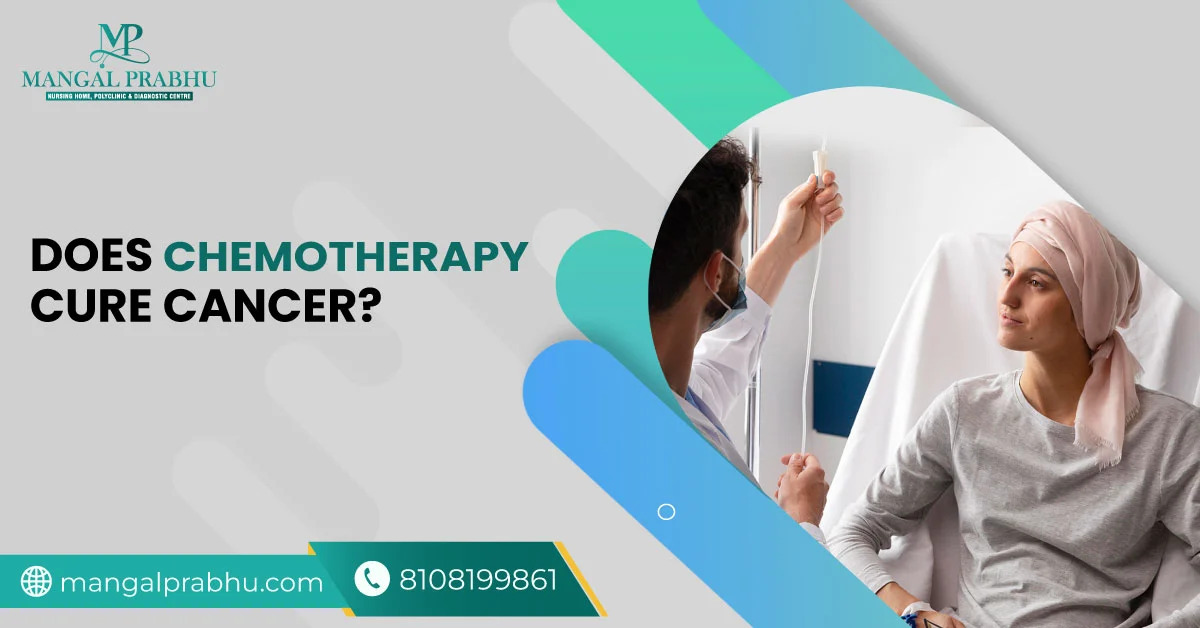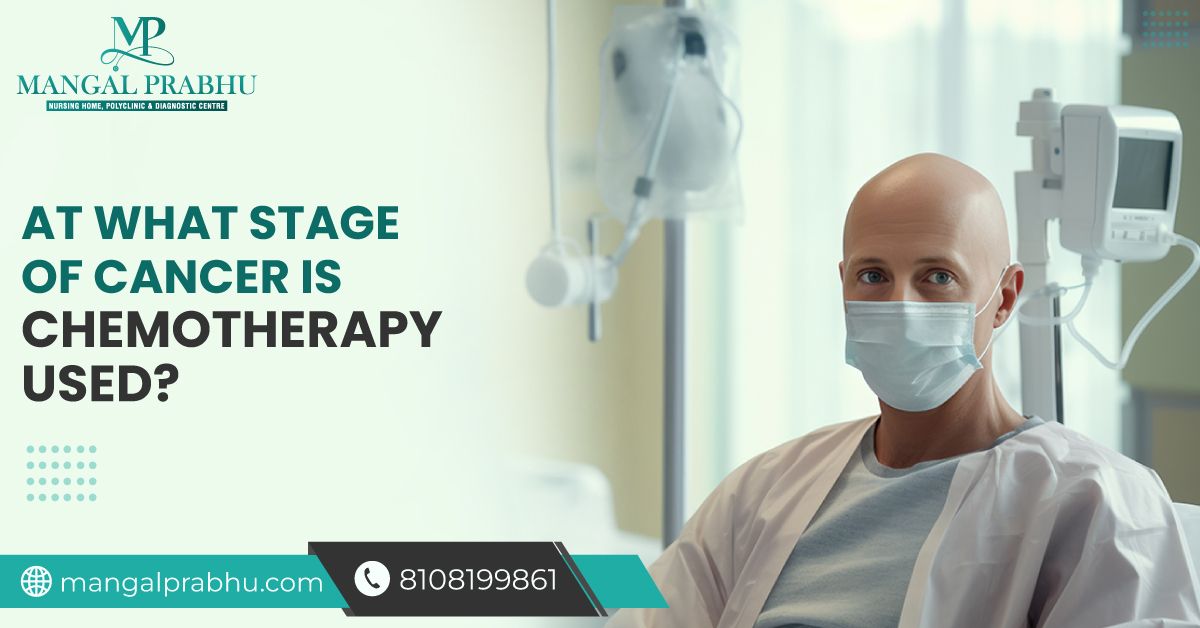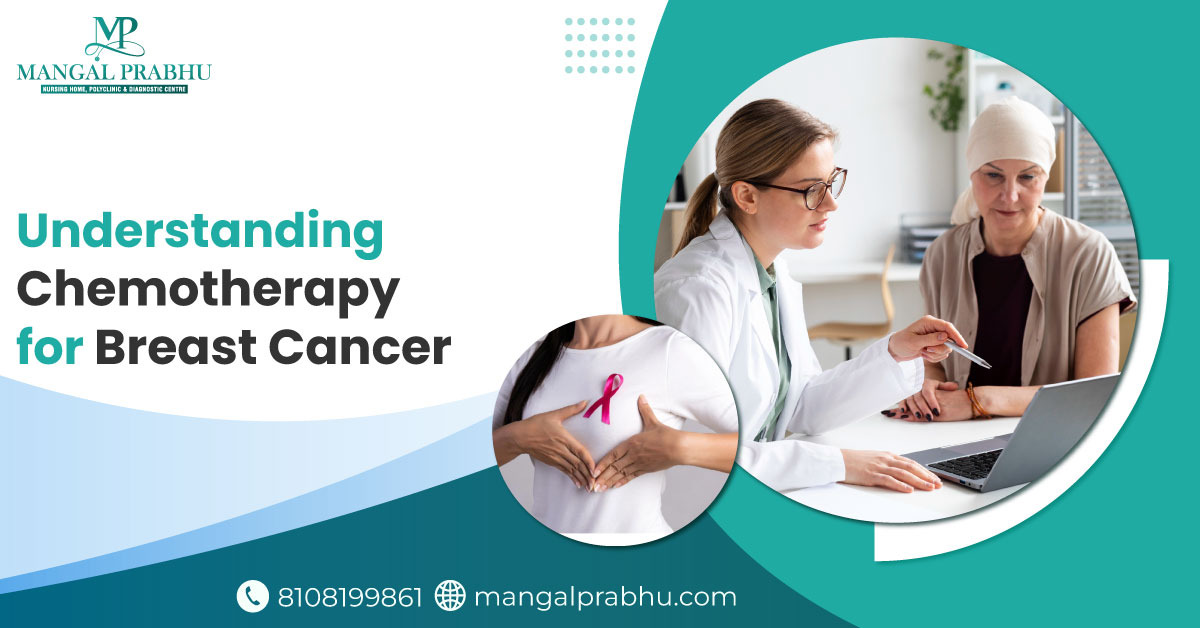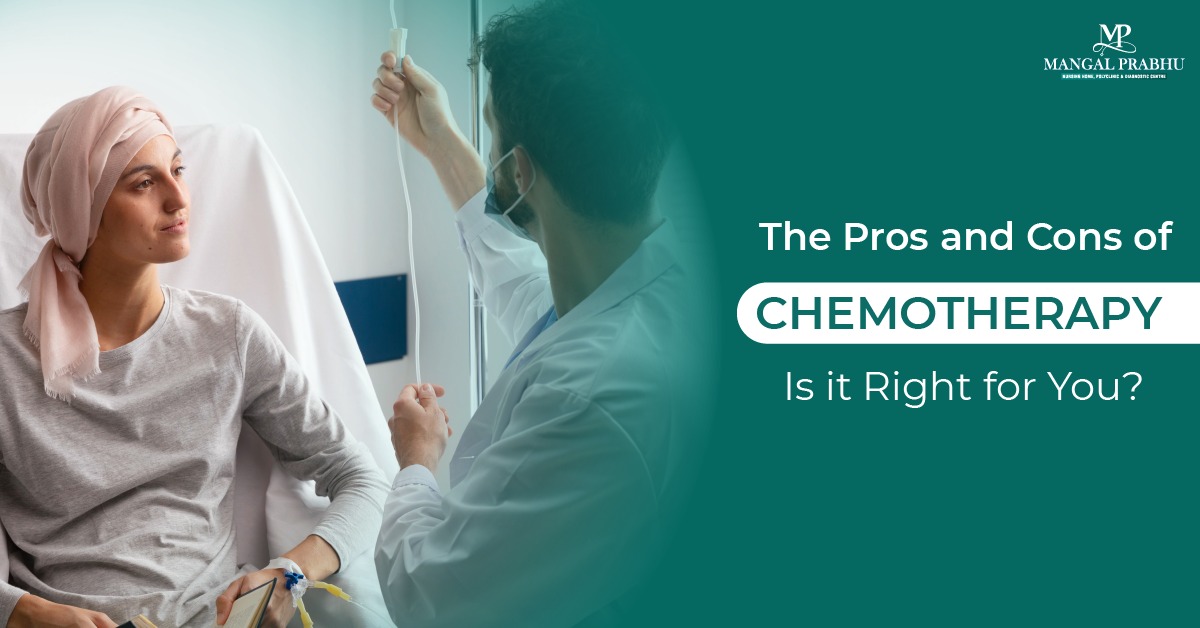
Does Chemotherapy Cure Cancer?
Recovery from cancer is not a cakewalk. The first thing that strikes our mind when it comes to cancer is chemotherapy. It’s a treatment used to kill cancer cells through intravenous administration of the drugs.
These drugs are designed to destroy the rapidly multiplying cells, thus inhibiting cancer growth. While chemotherapy treatment in Navi Mumbai is quite effective in treating cancer, the procedure comes with many side effects. Besides, there’s no guarantee it will cure cancer and prevent relapse.
How Chemotherapy Works
Depending on the type and stage of cancer, chemotherapy can be used as a standalone procedure or in conjunction with radiation therapy and surgery. It can shrink the tumor and destroy cancer cells. Most chemotherapy drugs are given intravenously, but your doctor might recommend a topical application, a single injection shot, or pills.
An oncologist in Navi Mumbai will tell you the number of chemotherapy sessions you need to undergo to kill cancer. Then, based on how your body responds to the treatment, your doctor will either stick to the plan or advise additional treatment, such as surgical removal of the tumor, radiation therapy, or hormone therapy, for the best outcome.
Effectiveness of Chemotherapy
The effectiveness of chemotherapy can vary for each patient. It depends on the type of cancer, the patient’s overall health, the size of the tumor, and how far it’s spread. However, studies show that those exposed to chemotherapy have a better survival rate than those who never undergo chemo. The sooner you report your symptoms and get an accurate diagnosis, the higher your survival rates.
Note that cancer can return even after you are declared cancer-free. Some types of cancer have a chance of relapse, requiring more rounds of chemotherapy. Your oncologist will schedule regular follow-up visits to ensure the cancer has not returned.
Limitations of Chemotherapy
The chemo session isn’t always painful, especially not for those taking it through pills and topical. Intravenous chemo and injections can hurt a little, but it’s nothing more than a slight burning sensation.
Chemotherapy is used to destroy the rapidly growing cells in your body. That’s how it helps kill cancer fast. However, cancer cells are not the only cells that multiply quickly. The cells in your skin, hair follicles, digestive tracts, and other parts of the body also grow fast.
Cancer treatment can also destroy these healthy cells, leading to side effects such as hair loss, fatigue, constipation, diarrhea, vomiting, loss of appetite, and infection. The good news is that the side effects of chemotherapy last for a short while, usually until your treatment stops. Some side effects are, however, permanent. They include infertility, heart problems, and early menopause.
Conclusion
Chemotherapy is an effective way to kill cancer, but the treatment comes with side effects and is usually advised with surgery and other procedures. Ask your oncologist about the success rate of chemotherapy and the side effects. Fortunately, some types of cancer disappear completely following the chemotherapy and don’t require additional treatment. But there’s always a chance of a relapse.

At What Stage of Cancer Is Chemotherapy Used?
Chemotherapy is a combination of medications used to kill cancer cells that are growing aggressively and spreading to your different organs. Chemotherapy treatment in Navi Mumbai is recommended for patients diagnosed with different stages of cancer.
It’s considered an effective treatment option for all types of cancers. The type of chemotherapy your doctor advises depends on the stage, type, and severity of the cancer. They might also factor in your age and health goals to determine the most suitable treatment option.
The Different Stages of Cancer
Chemotherapy can be given for stage I to stage IV cancer patients. Most types of cancer are categorized into four stages, and the diagnosis is done based on how aggressive the cancer cells are, where they have spread, and the patient’s health. For most types, cancer in its first stage is restricted to a specific organ, while the same in stage IV is considered metastatic cancer that has spread to the surrounding organs, probably throughout the body.
Here’s how chemotherapy is planned for different stages of cancer.
Stage 1:
Chemotherapy combined with surgery
Stage 2:
A surgical removal of the malignant tumor and several sessions of chemotherapy.
Stage 3A:
Chemotherapy with surgery or surgery followed by chemotherapy, radiation therapy, and immunotherapy, depending on the location of the cancer. If the cancer can’t be removed surgically, then a combination of chemotherapy, immunotherapy, and radiation therapy is prescribed.
Stage 3B and 3C:
Chemotherapy with multiple rounds of radiation therapy followed by surgery and immunotherapy.
Stage 4:
Chemotherapy, targeted therapy, surgery (if possible), followed by more rounds of chemotherapy.
Types of Chemotherapy Drugs
Chemotherapy drugs are a combination of medications consisting of the following:
i) Alkylating Agents:
These are responsible for destroying the DNA of the replicating cancer cells.
ii) Antimetabolites:
These drugs can destroy cancer cells when they are about to grow out of control in your body. Antimetabolites work for breast, ovarian, and other types of cancer.
iii) Antitumor:
The medication changes the DNA structure of cancer cells, restricting their growth and multiplication inside the body. Mitotic inhibitors are also commonly used to treat cancer cells, but they contain a compound that might destroy healthy cells, as well. So, their use is often limited to certain types of cancers.
Benefits of Chemotherapy
Chemotherapy is the most viable cancer treatment for people diagnosed with cancer in different stages and severity statuses. Here’s how it benefits:
- Restrict the growth of the tumor or shrink its size to make surgical removal of the cancer possible
- Prevent the cancer cells from dividing
- Reduces the risk of relapse
Potential Side Effects
Oncologists in Navi Mumbai recommend chemotherapy after considering your age, size, type of cancer, and your health. Before you choose this treatment, know that it comes with side effects. These may vary depending on the chemo drugs used, but some common side effects found in most patients include:
- Fatigue
- Nausea and vomiting
- Diarrhea
- Hair loss
- Mouth sores
- Loss of appetite
- Anemia
- Weakness in muscles
Schedule an appointment with your healthcare to discuss the most suitable chemotherapy option, the length of the treatment, and the risks.

Understanding Chemotherapy for Breast Cancer
When it comes to combating breast cancer, a multidimensional approach is often required. Chemotherapy Treatment in Navi Mumbai is pivotal in eradicating cancer cells throughout the body. Breast cancer is a formidable adversary, and in the arsenal of treatments available, chemotherapy stands as a powerful weapon against its progression. In this comprehensive guide, you can learn more about chemotherapy for breast cancer, exploring its mechanisms, risks, benefits, and crucial role in the overall treatment landscape.
What is Chemotherapy?
Chemotherapy is a medical treatment that utilizes drugs to target and destroy rapidly dividing cells, such as cancer cells. Unlike localized treatments such as surgery or radiation therapy, chemotherapy circulates throughout the bloodstream, reaching cancer cells that may have spread to other body parts.
How Does Chemotherapy Work for Breast Cancer?
Chemotherapy is a dynamic player in the breast cancer treatment arena, strategically deployed at different phases of the patient’s journey. In the pre-surgical phase, known as neoadjuvant chemotherapy, it shrinks tumors, facilitating more effective surgical removal.
Post-surgery, adjuvant chemotherapy takes the stage, aiming to eradicate any residual cancer cells, minimizing the risk of recurrence. The drugs utilized in chemotherapy exert their impact by disrupting the cell division process, impeding the growth and spread of cancer cells.
This dual approach, targeting both pre- and post-operative stages, showcases the versatility and effectiveness of chemotherapy in comprehensively managing breast cancer.
What Are the Risks and Side Effects of Chemotherapy?
While chemotherapy is a potent weapon, it is not without its challenges. Common side effects include fatigue, nausea, hair loss, and a heightened infection susceptibility. It is essential to acknowledge these potential side effects while recognizing that advancements in medical science continuously strive to minimize the impact on a patient’s quality of life.
Also Read: How Chemotherapy Is Done?
What Are the Benefits of Chemotherapy for Breast Cancer?
The benefits of chemotherapy in treating breast cancer are multifaceted.
1) Tumor Size Reduction
Chemotherapy effectively targets and reduces the size of breast tumors, facilitating a more manageable surgical intervention.
2) Risk Reduction for Cancer Recurrence
By eradicating cancer cells that may remain after surgery, chemotherapy significantly lowers the risk of cancer recurrence.
3) Enhanced Surgical Success
Administering chemotherapy post-surgery ensures the elimination of any residual cancer cells, enhancing the success of surgical procedures.
4) Holistic Treatment Approach
Integrating chemotherapy into a comprehensive treatment plan addresses cancer from multiple angles, leading to a more thorough and effective therapeutic strategy.
5) Long-Term Survival Rates
The multifaceted benefits of chemotherapy contribute to improved long-term survival rates, offering individuals battling breast cancer a more favorable prognosis.
6) Systemic Cancer Cell Targeting
Chemotherapy’s systemic nature allows it to target cancer cells throughout the body, addressing potential metastases and minimizing the risk of distant recurrence.
Conclusion
In breast cancer treatment, chemotherapy plays a dynamic and indispensable role. Its ability to target cancer cells systemically makes it a crucial component of a comprehensive treatment strategy. For individuals confronting breast cancer, collaboration with a specialized medical team, including a Breast Cancer Specialist in Navi Mumbai, is essential. Mangal Prabhu Hospital is a beacon of healthcare excellence, providing state-of-the-art facilities and a dedicated team of experts to guide patients through their breast cancer journey.

How Chemotherapy Is Done?
Introduction to Chemotherapy
The journey through cancer treatment often involves various therapeutic approaches, and one of the most well-known is chemotherapy. This widely recognized treatment plays a crucial role in combating cancer cells, and understanding how chemotherapy is administered can empower individuals facing cancer. In Navi Mumbai, centers like Mangal Prabhu Hospital offer comprehensive care under the expertise of skilled Oncologists in Navi Mumbai.
What is Chemotherapy?
Chemotherapy, often referred to as “chemo,” is a medical treatment that employs powerful drugs to target and destroy rapidly dividing cells. While cancer cells are the primary target, chemotherapy can also affect healthy cells that divide quickly, such as bone marrow, digestive tract, and hair follicles.
What is the Purpose of Chemotherapy?
The primary goal of chemotherapy is to eliminate or control the growth of cancer cells. It can be used at different stages of cancer treatment:
a) Before Surgery:
Neoadjuvant chemotherapy aims to shrink tumors before surgery, making them more manageable to remove.
b) After Surgery:
Adjuvant chemotherapy is administered after surgery to eliminate any remaining cancer cells and reduce the risk of recurrence.
c) Primary Treatment:
In cases where surgery or radiation therapy may not be viable, chemotherapy is the immediate treatment.
d) For Palliative Care:
In advanced stages, chemotherapy can alleviate symptoms and improve the quality of life.
How Chemotherapy is Done?
The process of chemotherapy involves several key steps:
A) Consultation and Planning:
Patients undergo a thorough consultation with an oncologist before initiating chemotherapy. A personalized treatment plan is developed based on cancer type, stage, overall health, and medical history.
B) Drug Administration:
Chemotherapy drugs can be administered in various ways, including intravenously (IV), orally (in the form of pills or liquids), or through injections. The chosen method depends on the specific drugs and the patient’s condition.
C) Treatment Cycles:
Chemotherapy is often administered in cycles, each consisting of a treatment period followed by a rest period. This approach helps minimize damage to healthy cells and allows the body to recover.
D) Outpatient or Inpatient:
Depending on the intensity and duration of treatment, chemotherapy sessions may be conducted on an outpatient basis, allowing patients to return home afterward or in an inpatient setting for more extensive regimens.
What are the Side Effects of Chemotherapy?
While chemotherapy is a powerful tool against cancer, it can also lead to side effects due to its impact on average, rapidly dividing cells. Common side effects may include:
- Fatigue
- Nausea and Vomiting
- Hair Loss
- Bone Marrow Suppression
- Gastrointestinal Issues
- Mouth Sores
- Neuropathy
Conclusion
Chemotherapy is a dynamic and evolving aspect of cancer treatment, representing a cornerstone in the fight against this formidable disease. In Navi Mumbai, facilities like Mangal Prabhu Hospital, with dedicated oncologists, play a vital role in providing comprehensive Chemotherapy Treatment in Navi Mumbai. While the process can be challenging, understanding the purpose, procedure, and potential side effects empowers individuals on their cancer journey. With ongoing advancements in medical science, chemotherapy significantly improves outcomes and enhances the quality of life for those undergoing cancer treatment.

The Pros And Cons Of Chemotherapy: Is It Right For You?
Chemotherapy is the most effective treatment plan for treating and killing cancer cells by preventing their slowing and spreading growth. It is the most common cancer treatment to prevent tumor growth and destroy cancer cells. However, this guide will help you understand the advantages and disadvantages associated with chemotherapy so you can also make the right decision.
What is Chemotherapy & How Does It Work?
Chemotherapy is a kind of cancer treatment that is also known as chemo. It includes various drugs and treatment plans such as immunotherapy, hormone therapy, and targeted therapy against different types of cancer. Chemotherapy can also be paired with radiation therapy to cure cancer and ease its symptoms.
Chemotherapy works by destroying the cancer cells and stopping them from spreading. However, Mangal Prabhu Hospital is the best chemotherapy center in Navi Mumbai and uses the best tools and techniques to provide the fastest and most effective treatment. Their oncologist may use chemotherapy in various ways, including neoadjuvant, adjuvant, palliative, and curative therapy.
The Pros of Chemotherapy – Understanding the Benefits
Chemotherapy is very advantageous for cancer patients. Some of the benefits of this treatment are:
- It kills the cancer cells in the early stages of the disease.
- It reduces the intensity of the tumor before radiation therapy or surgery.
- Chemotherapy helps prevent and slow down the growth of cancer cells.
- Help in fighting the cancer cell, and other treatments work better.
- It made surgery possible by eliminating the cancer’s dead cells and reducing its spread.
Also Read: Chemotherapy: Types, Treatment, And Side Effects!
The Cons of Chemotherapy – Possible Side Effects & Risks
Chemotherapy not only kills cancer cells, but it also slows down the growth of healthy cells. It damages healthy cells and may cause side effects. However, some of the most common disadvantages and side effects of chemotherapy are:
- Hair loss
- Mouth sores
- Nausea
- Fatigue
- Patients must visit hospitals regularly to continue therapy, which can be tiring.
- It may not help all cancer patients.
- The recovery time and effects may differ from person to person.
Deciding Whether Chemotherapy is Right for You
Chemotherapy benefits all cancer patients or people with early signs of cancer but has some potential side effects. However, it would be best to decide and ask your loved ones whether you should start chemotherapy to treat your issue. It is the most effective way to treat cancer and may be very important for patients who do not need immediate treatment, such as prostate cancer or indolent lymphoma.
However, your physician may recommend chemotherapy if there is a sign that your cancer may grow in the future to prevent the cancer cells from spreading, or they may also suggest it if it has already spread to kill harmful cells.
Conclusion
If you have been diagnosed with cancer or it has already spread, it would be best to begin your cancer treatment as soon as possible. However, you can consider the best hematologist oncologist in Navi Mumbai, Mangal Prabhu Hospital, for the best cancer treatment. They offer the highest quality treatment with their standard healthcare plan at an affordable price, so everyone can get the best treatment without worrying about anything.
